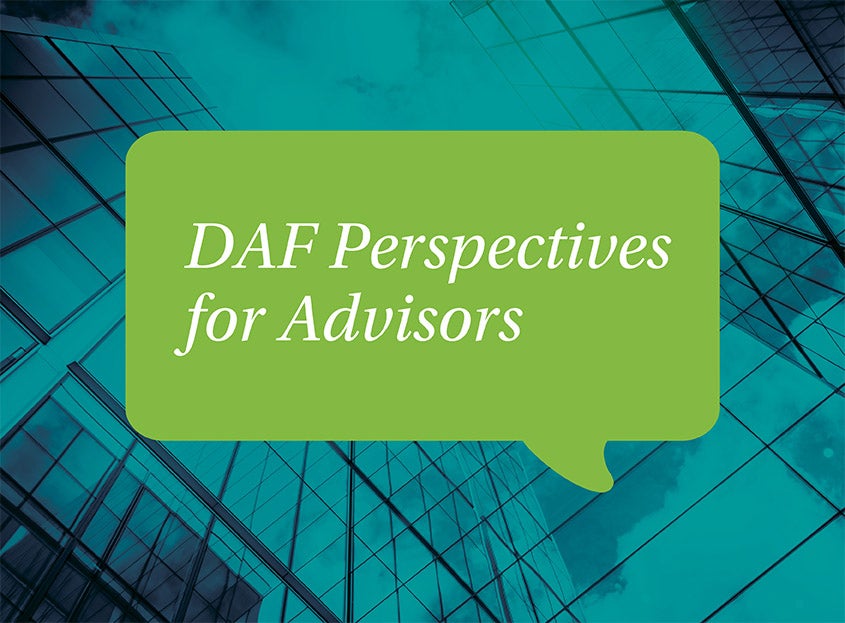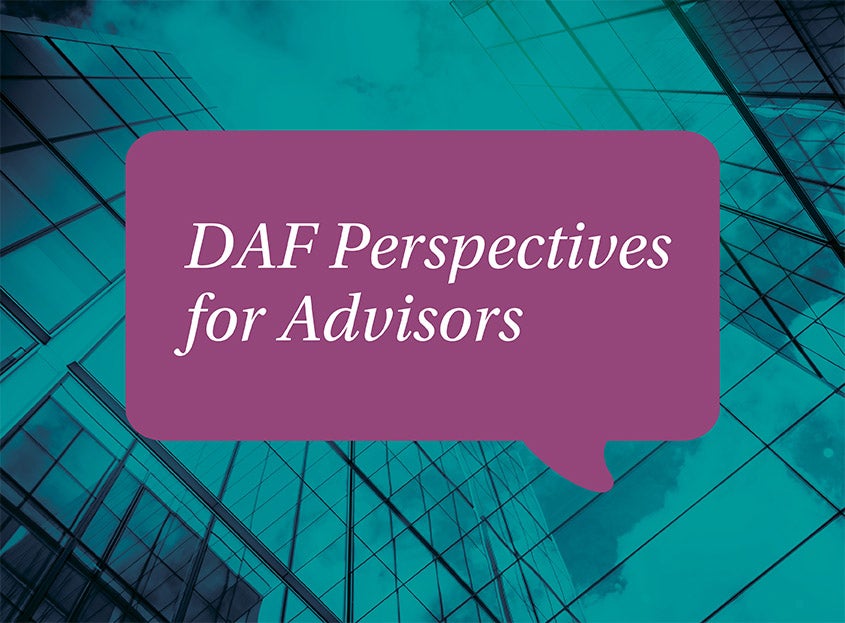Three Key Moments to Talk to Clients about Donor-Advised Funds

NPT UK is proud to introduce a new series for our blog: DAF Perspectives for Advisors. Through the Perspectives series we will deliver useful, timely information to help advisors better manage the philanthropic conversation with their clients and stay ahead of trends and issues in charitable giving.
In previous blog posts, we’ve talked about why clients may want to set up and contribute to a donor-advised fund (DAF). Once your clients have a DAF in place, you can help them use this effective giving tool to realise their philanthropic goals for years to come.
Here are three key moments to talk to your clients about DAFs:
The annual review. At a minimum, you will usually see each of your clients once a year. These annual meetings help you understand if and how your clients’ goals have changed and allow you to assess the performance of their portfolios. When you meet, include a review of their DAF in the discussion. Ask your clients about their giving plans for the upcoming year. For instance, your clients may have discovered a new cause they want to support. Focusing on what drives your clients’ philanthropy will help to open a broader conversation. You can also review the investment performance of their DAF assets, and you can explore whether there is an opportunity for new contributions to the DAF. If your clients are considering additional contributions, you can help them determine which appreciated investments would be the best ones to donate.
Special situations. Throughout the year, any number of events could affect your clients’ giving plans and prompt a new conversation about philanthropic planning. Here are two of the most common:
● Change in income: Your clients may have a significant income spike due to a bonus or the sale of a business. A DAF contribution at these critical moments could help to reduce your clients’ tax liability, while allowing them to set aside money for grantmaking in the future.
● Gifting complex or illiquid assets: Beyond standard gifts of cash, your clients may be interested in donating privately held company stock, a private equity interest, artwork, property, pre-IPO shares and more. Many charities are not equipped to handle complex gifts, but DAF sponsors like NPT UK have the expertise to help.
Estate planning meeting. By leaving a charitable gift in their will to their DAF, your clients will reduce the administration of their estate and help executors minimise time and costs. As NPT UK is a UK registered charity, any legacy gifts are outside a person’s estate before inheritance and will not count towards the total value of the estate. In the UK, if you help your clients give away 10 percent of their estate to charity, their inheritance tax rate may drop from 40 percent to 36 percent on remaining assets. If your clients wish to set up an endowed gift to build their giving legacy, their successors can carry out their giving plan for future generations. As you discuss your clients’ estate plans, remember to bring up how a DAF may be able to help your clients achieve their goals.
To find out more about how NPT UK can help your clients manage their philanthropy, contact us.
NPT UK does not provide legal or tax advice. This blog post is for informational purposes only and is not intended to be, and shall not be relied upon as, legal or tax advice. The applicability of information contained here may vary depending on individual circumstances.
To download a PDF of this blog post, click below:

